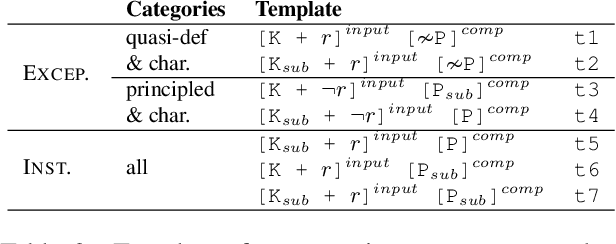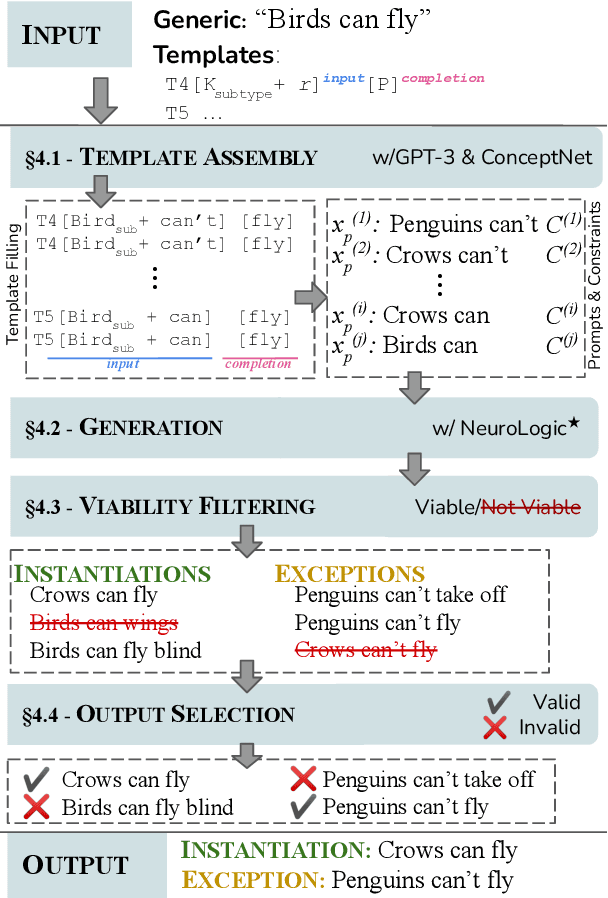Penguins Don't Fly: Reasoning about Generics through Instantiations and Exceptions
Paper and Code
May 23, 2022



Generics express generalizations about the world (e.g., "birds can fly"). However, they are not universally true -- while sparrows and penguins are both birds, only sparrows can fly and penguins cannot. Commonsense knowledge bases, which are used extensively in many NLP tasks as a source of world-knowledge, can often encode generic knowledge but, by-design, cannot encode such exceptions. Therefore, it is crucial to realize the specific instances when a generic statement is true or false. In this work, we present a novel framework to generate pragmatically relevant true and false instances of a generic. We use pre-trained language models, constraining the generation based on insights from linguistic theory, and produce ${\sim}20k$ exemplars for ${\sim}650$ generics. Our system outperforms few-shot generation from GPT-3 (by 12.5 precision points) and our analysis highlights the importance of constrained decoding for this task and the implications of generics exemplars for language inference tasks.
 Add to Chrome
Add to Chrome Add to Firefox
Add to Firefox Add to Edge
Add to Edge